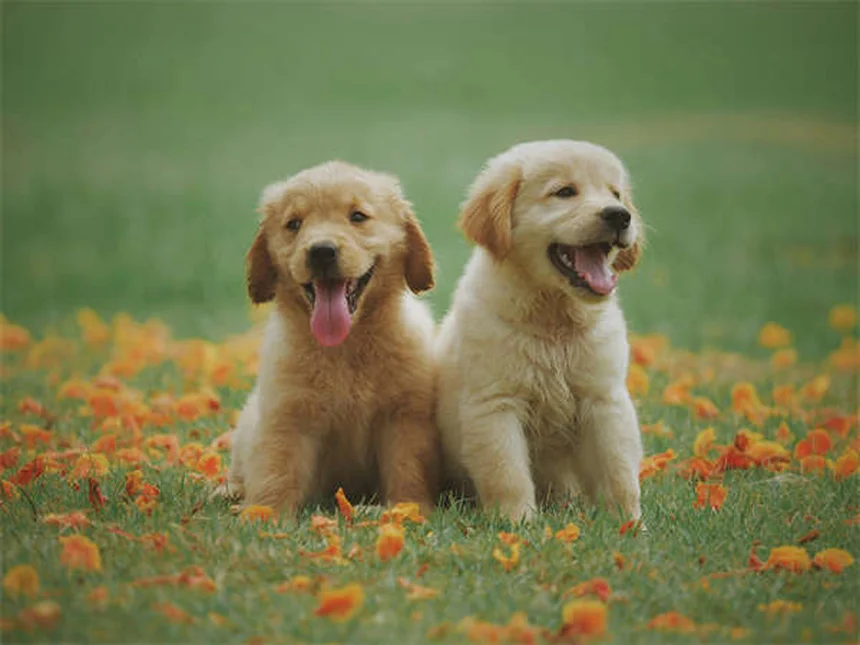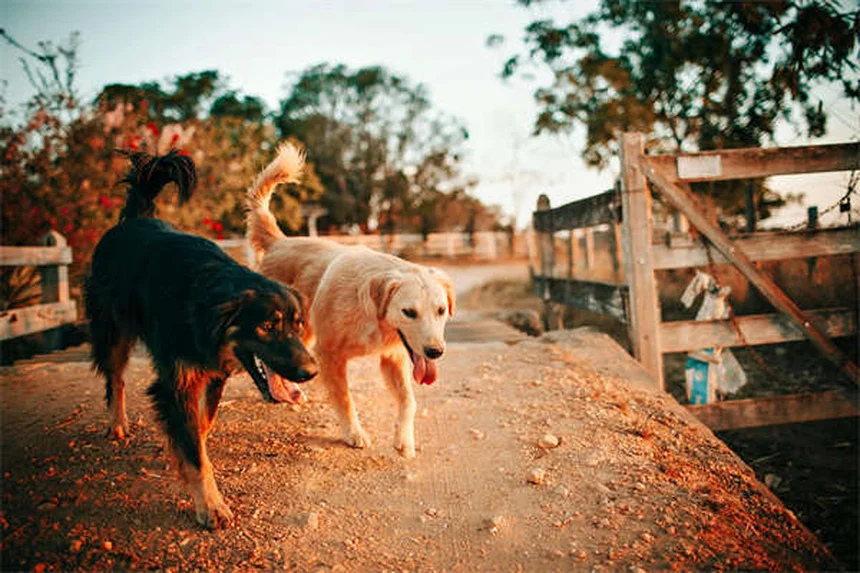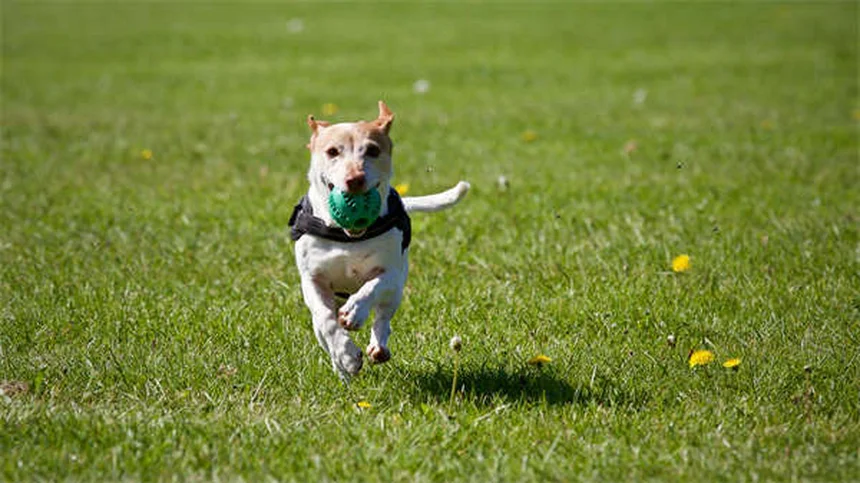Do puppies poop more than adult dogs? The answer is: Absolutely yes! Puppies are basically tiny poop machines, and here's why - their developing digestive systems process food at lightning speed. While an adult dog might go 1-3 times daily, your furball could drop 5-6 presents every single day! I remember when I first got my puppy Max, I was shocked by how often we were running outside. But don't worry, this is completely normal puppy behavior.In this guide, we'll break down everything you need to know about your puppy's poop schedule, from frequency to consistency. You'll learn what's normal, when to worry, and how to establish a healthy potty routine. Trust me, after reading this, you'll be a puppy poop expert in no time!
E.g. :Dry Mouth in Dogs and Cats: Causes, Symptoms & Treatment
Advertisement
- 1、Understanding Your Puppy's Poop Schedule
- 2、Poop Problems: Too Much or Too Little
- 3、Mastering the Potty Routine
- 4、Poop Quality Control
- 5、Special Considerations for Puppy Parents
- 6、The Science Behind Puppy Digestion
- 7、Environmental Factors Affecting Poop Schedule
- 8、Breed-Specific Poop Patterns
- 9、Training Techniques Beyond the Basics
- 10、When to Seek Professional Help
- 11、FAQs
Understanding Your Puppy's Poop Schedule
Why Puppies Poop So Frequently
Let me tell you something hilarious - puppies are basically poop factories! Their tiny digestive systems work like turbocharged engines, processing food at lightning speed. Unlike adult dogs who might poop once or twice daily, your little furball could drop 5-6 "presents" for you every single day!
Here's the science behind it: Puppies have developing digestive tracts that process meals quickly but not always efficiently. The younger your pup is, the faster food moves through their system. A 2-week-old puppy might poop after every meal, while a 12-week-old typically goes about 4 times daily. Check out this handy comparison table:
| Puppy Age | Average Poops Per Day |
|---|---|
| 2 weeks | After every feeding |
| 12 weeks | 4 times |
| 6 months | 3 times |
| 1 year | 1-3 times (adult pattern) |
What's Normal and When to Worry
Every puppy has their own "normal" poop rhythm. You'll become a poop detective in no time, examining frequency, consistency, color, and even texture. Healthy puppy poop should resemble a soft Tootsie roll - brown, formed but not too hard or runny.
But here's a question you might be wondering: How do I know if my puppy's pooping too much? Great question! While some variation is normal, sudden increases with changes in consistency or color could signal trouble. Watch for signs of discomfort and always check for foreign objects or worms (they might look like tiny spaghetti strands!).
Poop Problems: Too Much or Too Little
 Photos provided by pixabay
Photos provided by pixabay
When Your Puppy's Pooping Like There's No Tomorrow
If your puppy suddenly turns into a poop machine, don't panic yet. First, ask yourself: Did I change their food recently? Did they sneak some table scraps? Diet changes often cause temporary poop increases.
But if the poopapalooza continues beyond 24 hours, or if you notice mucus, blood, or your pup acting lethargic, that's your cue to call the vet. Remember, nearly all puppies have intestinal parasites - another great reason for regular vet checkups and deworming!
The Rare But Serious "No Poop" Situation
Now let's talk about the opposite problem - when your puppy's not pooping enough. This is uncommon in healthy pups, so pay attention! Straining without results or producing very little stool could mean an intestinal blockage - especially if your pup loves chewing toys or socks.
Here's something I learned the hard way: That cute squeaker from their toy? It could become a dangerous obstruction. If your puppy stops pooping suddenly, especially if they're not eating normally, this is a veterinary emergency.
Mastering the Potty Routine
Timing is Everything
Want to know a secret? Puppies usually need to poop within 5-30 minutes after eating. I like to set a timer after meals - when it goes off, we head outside for "business time." This consistency helps them learn faster.
Watch for these telltale signs: sniffing the ground, circling, or that "I'm about to poop" posture. When you see these, act fast! Getting them outside in time means fewer accidents inside.
 Photos provided by pixabay
Photos provided by pixabay
When Your Puppy's Pooping Like There's No Tomorrow
Here's where many new puppy parents go wrong: They bring their pup outside but come back in too soon. Stay outside until the job is done, even if it takes 15 minutes. I always bring treats to reward successful potty breaks - positive reinforcement works wonders!
Pro tip: Choose a specific potty spot in your yard. The familiar smells will trigger your puppy's instincts to eliminate there. Consistency in location and routine is key to house training success.
Poop Quality Control
The Perfect Puppy Poop
Let's get real about what healthy poop looks like. It should be:
- Brown (like milk chocolate)
- Formed but soft (think Play-Doh consistency)
- Free of foreign objects
- Without excessive mucus or blood
But here's another question you might have: Why does my puppy's poop sometimes have weird colors? Food dyes, certain treats, or even grass eating can temporarily change stool color. But persistent unusual colors (especially black, red, or white) need veterinary attention.
When Poop Tells a Story
Your puppy's poop is like a daily health report card. Over time, you'll learn their normal patterns. Sudden changes that last more than a day or two often mean something's up. Maybe they ate something they shouldn't have, or perhaps there's an underlying health issue.
I keep a simple log for my puppies - just quick notes about frequency, consistency, and anything unusual. This helps me spot patterns and gives my vet valuable information if problems arise. Remember, gradual changes are normal as your puppy grows, but sudden shifts warrant attention.
Special Considerations for Puppy Parents
 Photos provided by pixabay
Photos provided by pixabay
When Your Puppy's Pooping Like There's No Tomorrow
The food you choose directly impacts your puppy's poop. High-quality puppy food typically produces:
- Smaller, firmer stools
- Less frequent elimination
- More consistent texture
Cheap foods with lots of fillers? They often result in larger, smellier, and more frequent poops. Investing in good nutrition pays off in better poop and healthier puppies.
Stress and Poop: The Connection
Did you know stress can affect your puppy's bathroom habits? New environments, loud noises, or changes in routine might cause temporary diarrhea or constipation. Be patient during transitions - it might take a few days for their system to adjust.
When I brought my last puppy home, the car ride stressed him so much he didn't poop for nearly a day! The vet assured me this was normal, and sure enough, he was back to regular pooping once he settled in.
Featured image: iStock.com/Logorilla
The Science Behind Puppy Digestion
How Puppy Digestive Systems Develop
You know what's fascinating? A puppy's digestive system matures almost as fast as they grow out of their adorable puppy phase. At birth, their gut is sterile - completely blank slate. But within hours, beneficial bacteria start colonizing their intestines, creating what we call the gut microbiome.
Here's something most people don't realize: That first lick from mom isn't just affection - it's nature's way of transferring essential gut bacteria! By the time you bring your puppy home around 8 weeks, their digestive system is still developing but already more complex than you'd imagine.
The Role of Enzymes in Puppy Digestion
Let me break this down simply - enzymes are like tiny scissors that cut food into absorbable pieces. Puppies produce different enzymes than adult dogs, which explains why they need special puppy food. Their bodies make more lactase to digest milk when young, but this decreases as they mature.
Ever wonder why puppies can't handle adult dog food well? Here's the scoop: Their pancreas doesn't produce enough amylase (the enzyme that breaks down carbs) until about 4 months old. That's why puppy foods have easily digestible carbohydrates.
Environmental Factors Affecting Poop Schedule
Temperature and Activity Level Impacts
Here's an interesting observation from my years raising puppies: Colder weather makes puppies poop more frequently. Just like humans shiver to stay warm, puppies' metabolisms speed up in cold environments, processing food faster.
And get this - an active puppy is a pooping puppy! Playtime stimulates digestion. I've noticed my pups always need to go after a vigorous play session. The movement literally gets things moving internally too.
The Hydration Connection
Water intake plays a huge role in poop consistency that many owners overlook. Dehydrated puppies produce hard, pebble-like stools, while well-hydrated ones have that ideal Play-Doh consistency. Always keep fresh water available!
Here's a pro tip: Add water to dry kibble for puppies prone to constipation. The extra moisture helps everything flow smoothly through their system. Just don't overdo it - you don't want soupy stools either.
Breed-Specific Poop Patterns
Small Breeds vs Large Breeds
Did you know a Chihuahua puppy's digestive system works differently than a Great Dane puppy's? Small breed puppies typically need to eat more frequently, which means - you guessed it - more frequent potty breaks!
Check out these interesting breed differences:
| Breed Size | Average Poops Per Day | Typical Meal Frequency |
|---|---|---|
| Toy Breeds | 5-6 times | 4 meals/day |
| Medium Breeds | 4-5 times | 3 meals/day |
| Large Breeds | 3-4 times | 2-3 meals/day |
Special Considerations for Sensitive Breeds
Some breeds are notorious for sensitive stomachs. Bulldogs, Boxers, and German Shepherds often need extra digestive support. Probiotics can be game-changers for these pups, helping maintain that delicate gut balance.
I'll never forget my Boxer puppy's digestive drama - turns out he needed a limited ingredient diet and daily probiotics. Once we figured that out, his poop schedule became as regular as clockwork!
Training Techniques Beyond the Basics
The Power of Cue Words
Here's a trick that transformed my potty training success: Using a specific phrase every time they eliminate. I say "Go potty" when they start, then praise enthusiastically when they finish. Eventually, they associate the words with the action.
But here's something you might not know: You can actually teach your puppy to poop on command! It takes patience, but by consistently using the cue during elimination, they'll learn to go when you ask. Super helpful for travel or bad weather days!
Nighttime Strategies That Work
Let's talk about those exhausting first nights with a new puppy. Their tiny bladders and digestive systems don't take breaks, which means midnight potty trips are inevitable. Here's what I've found works best:
- Remove water 2 hours before bedtime
- Do a final potty break right before crate time
- Set alarms for every 2-3 hours initially
- Keep nighttime trips boring - no playtime!
The good news? Most puppies can sleep through the night by 12-16 weeks as their systems mature. Hang in there - it gets better!
When to Seek Professional Help
Red Flags in Puppy Poop
While most puppy poop variations are normal, some signs scream "Call the vet!" Blood (red or black tarry stools), white/gray/chalky poop, or jelly-like mucus all warrant immediate attention.
Here's a question I get all the time: How long should I wait before calling the vet about diarrhea? For puppies under 6 months, I recommend calling after 24 hours of diarrhea or if you notice lethargy or loss of appetite. Their small bodies dehydrate quickly!
The Parasite Problem
Let's be real - almost all puppies have worms. It's not a reflection of poor care, just a fact of puppyhood. Roundworms look like spaghetti, tapeworm segments resemble rice grains, and giardia causes foul-smelling diarrhea.
My golden rule? Assume your new puppy has parasites and get that fecal test done ASAP. Most vets recommend deworming every 2-3 weeks initially. Trust me, you'll sleep better knowing those critters are gone!
E.g. :How Often Do Puppies Poop? | PetMD
FAQs
Q: How many times a day should my puppy poop?
A: Puppies poop way more than adult dogs - that's just how their little bodies work! Typically, you can expect:
- 2-week-old puppies: After every single feeding
- 12-week-old puppies: About 4 times daily
- 6-month-old puppies: Around 3 times daily
- 1-year-old dogs: 1-3 times (adult pattern)
I always tell new puppy parents to keep a simple poop log. It helps you track what's normal for your specific pup. Remember, gradual changes are fine as they grow, but sudden shifts might need a vet visit.
Q: Why does my puppy poop right after eating?
A: This is completely normal puppy behavior! Their digestive systems are like little turbo engines - food goes in one end and comes out the other in as little as 30 minutes. Here's a pro tip I've learned: Set a timer for 5-15 minutes after meals, then head straight outside. This consistency helps with house training. Just be patient - it takes time for puppies to fully control their bathroom urges.
Q: What should healthy puppy poop look like?
A: Healthy puppy poop should resemble a soft Tootsie roll - brown, formed but not too hard or runny. Watch for these warning signs:
- Watery diarrhea (could mean parasites or illness)
- Hard, dry pellets (might indicate dehydration)
- Black or red streaks (possible internal bleeding)
- White specks (could be worms)
When my puppy had his first weird poop, I panicked and called the vet. They reassured me that occasional variations are normal, but persistent changes need attention.
Q: When should I worry about my puppy's poop frequency?
A: Sudden changes in poop frequency are your biggest red flags. If your normally regular puppy starts going 8+ times a day or hasn't gone in 24 hours, it's time to investigate. Check for:
- Changes in diet or environment
- Signs of discomfort or straining
- Foreign objects in stool
- Loss of appetite or energy
Remember that time my puppy ate part of his chew toy? He stopped pooping normally for two days - that was an emergency vet visit! Better safe than sorry with puppies.
Q: How can I establish a good potty routine for my puppy?
A: Consistency is key when house training a puppy. Here's the routine that worked wonders for me:
1. Take puppy out first thing in the morning
2. Go out within 15 minutes after every meal
3. Schedule potty breaks every 1-2 hours
4. Always go out before bedtime
Pro tip: Choose one specific potty spot and use a command like "Go potty." Bring treats to reward success! It might feel like you're living outside at first, but trust me, this phase doesn't last forever.

